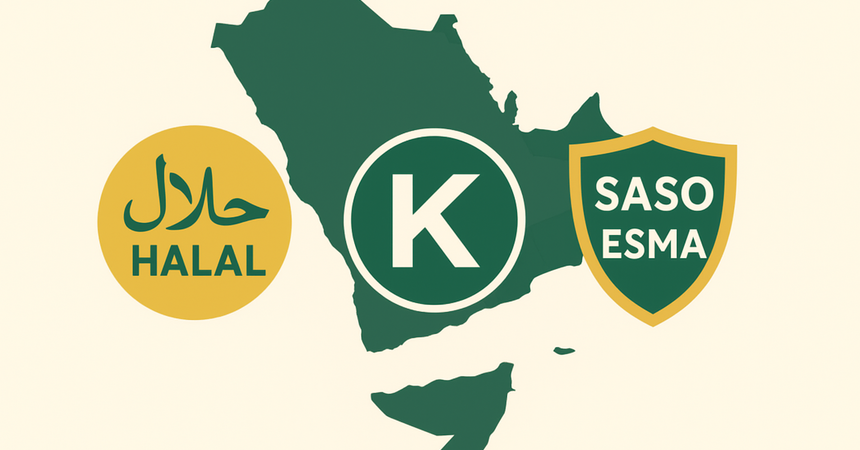The markets of the Gulf Cooperation Council countries (GCC — Saudi Arabia, UAE, Kuwait, Qatar, Bahrain, Oman) are among the most attractive for international business. However, when entering these markets, companies face not only national regulatory systems (such as SASO in Saudi Arabia or ESMA in the UAE) but also religious standards — primarily halal. Increasingly, kosher certification is also gaining relevance in niche segments.
Why Religious Standards Matter
- Halal — the key standard, mandatory for importing most food products, beverages, cosmetics, pharmaceuticals, and even packaging into Saudi Arabia and the UAE.
- Kosher — in demand in malls and restaurants catering to tourists and business communities, especially in Dubai.
- National norms (SASO, G-Mark, ESMA) regulate product safety and compliance with technical regulations.
- Thus, halal certification opens the door to the market, while national certification secures the product’s legal status.
How It Works in Practice
1. Food Products- Halal certification is mandatory for meat, beverages, and ingredients.
- SASO or ESMA check labeling, additive safety, and packaging compliance.
- Increasingly required to prove halal compliance (no pork fat, alcohol, or prohibited components).
- Products also undergo national safety testing.
- lastics and paper must meet both environmental standards and halal requirements (e.g., no animal-based dyes).
- Customs authorities will not release products without halal certification.
- Even with halal approval, SASO, G-Mark, or ESMA conformity certificates are still required.
How Different Standards Work Together
- Halal + national regulations → double filter: first religious purity, then safety and quality.
- Kosher is not mandatory but provides a competitive advantage in premium and tourism segments.
- In some countries (e.g., UAE), halal certificates are checked against international norms (GSO, GCC Standardization Organization).
Key Challenges for Foreign Manufacturers
- Multiple certifying bodies: religious organizations + government regulators.
- Localization requirements: instructions and labeling must be in Arabic.
- Non-recognition: halal certificates from Europe are not always accepted directly in GCC.
- Additional testing: a product may pass religious certification but fail at packaging safety checks.
Conclusion
In GCC markets, certification works on two levels: religious standards (halal, kosher) and national technical regulations (SASO, G-Mark, ESMA, etc.). Only together do they open access to sales. Companies that take both levels into account gain a significant advantage and build stronger consumer trust.Contact WorldWideBridge — we organize a complete certification package for GCC countries: from halal and kosher to national norms like SASO and ESMA, ensuring your products enter Middle Eastern markets smoothly.
